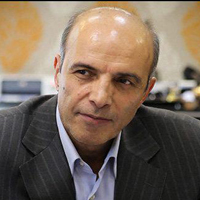A Phenomenological Study of the Lived Experience of Borujerd Lak-speakers of Social Interactions After Facing the Spread of Corona
The spread of Corona, with emphasis on social distancing, caused social interactions within ethnic contexts to undergo changes in terms of quantity and quality. Based on this, the current research is focused on the phenomenology of the lived experience of Borujerd city Lak-speakers of social interactions after facing the Corona outbreak. The current phenomenological research has used the Moustakas technique to analyze the data. The number of 16 samples was selected purposefully and until theoretical saturation, and the data was collected by in-depth interview method. Collaborative observation (10 field observations) was also used to collect more data. Based on the results of coding and field data analysis, the concept of "post-corona ethnic interaction" includes 8 main clusters, which are: 1) the opportunity to find human agency, 2) the socialization of interaction, 3) the continuity of ethnic members, 4 ) the digitalization of interaction, 5) the scientific-rationalization of the epistemic base of interaction, 6) the purposeful interaction, 7) the hyper-digitalization of interaction, and 8) the appearance of the role of inhuman agency. In general, the threat of Corona has acted as a shock that has provided the opportunity to express individuality for the members of the ethnic community of Lak tribe.
-
Identifying and prioritizing addiction treatment components and preventive solutions (Case study: Lorestan province)
*
Police Criminological Research Journal, -
Analysis of Substrates and Consequences of Occupational Safety and Health (HSE) By Grounded Theory Method (Case Study: Workshop Staff of Bandar Jask Naval Hospital)
Mohammadreza Hosseini, narges khoshkalam*
Journal of Social Development, -
Youth's Understanding of the Happiness Experience: A Research among Young Students in Tehran
Omid Abolfathy *, Saeid Moidfar
Strategic Studies On Youth and Sports, -
The habit of "self-interest" in the political-administrative structure of contemporary Iran
Fatemeh Zandi, S.Yahghob Mousavi *, Ali Rajablou, Saeed Moidfar
Journal of Sociological Cultural Studies,



